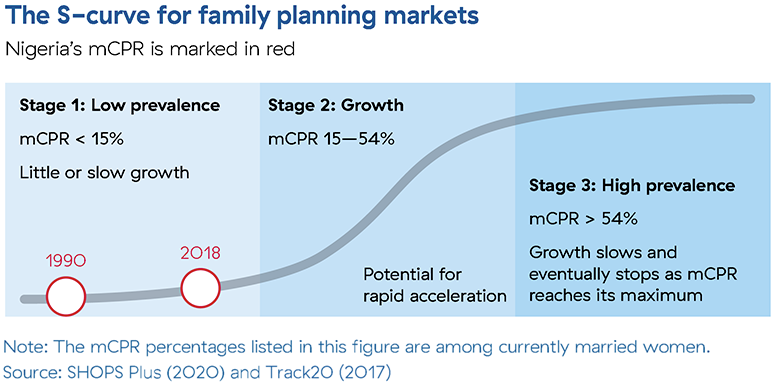Nigeria: The Private Sector's Contributions to Family Planning Market Growth
The Nigerian family planning market experienced substantial private sector contributions from 1990 to 2018; however, the modern contraceptive prevalence rate among married women remained in Stage 1—increasing from 3.5 to 12.0 percent. A SHOPS Plus analysis revealed several economic, sociocultural, policy, and programmatic factors that facilitated the private sector’s contributions to increase the modern contraceptive prevalence rate. Understanding these factors can help donors and country governments better consider appropriate private health sector investments and interventions in their family planning programs.
This is one in a series of briefs that examines the family planning markets in six countries. Click here to access the additional country briefs and a full synthesis of the six country analyses.
SHOPS Plus
